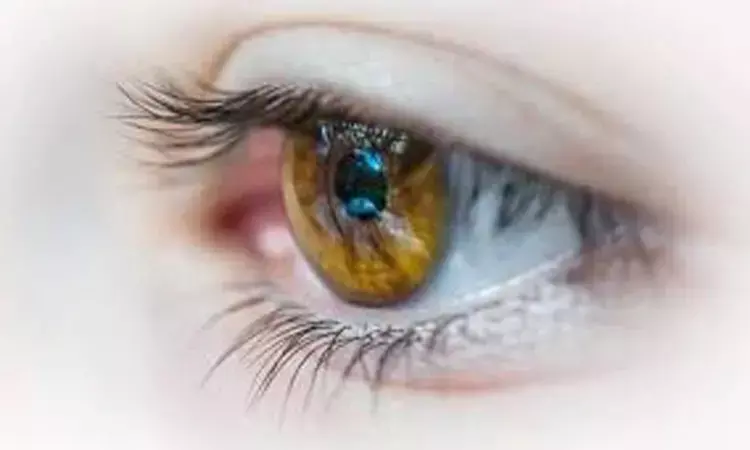- Home
- Medical news & Guidelines
- Anesthesiology
- Cardiology and CTVS
- Critical Care
- Dentistry
- Dermatology
- Diabetes and Endocrinology
- ENT
- Gastroenterology
- Medicine
- Nephrology
- Neurology
- Obstretics-Gynaecology
- Oncology
- Ophthalmology
- Orthopaedics
- Pediatrics-Neonatology
- Psychiatry
- Pulmonology
- Radiology
- Surgery
- Urology
- Laboratory Medicine
- Diet
- Nursing
- Paramedical
- Physiotherapy
- Health news
- Fact Check
- Bone Health Fact Check
- Brain Health Fact Check
- Cancer Related Fact Check
- Child Care Fact Check
- Dental and oral health fact check
- Diabetes and metabolic health fact check
- Diet and Nutrition Fact Check
- Eye and ENT Care Fact Check
- Fitness fact check
- Gut health fact check
- Heart health fact check
- Kidney health fact check
- Medical education fact check
- Men's health fact check
- Respiratory fact check
- Skin and hair care fact check
- Vaccine and Immunization fact check
- Women's health fact check
- AYUSH
- State News
- Andaman and Nicobar Islands
- Andhra Pradesh
- Arunachal Pradesh
- Assam
- Bihar
- Chandigarh
- Chattisgarh
- Dadra and Nagar Haveli
- Daman and Diu
- Delhi
- Goa
- Gujarat
- Haryana
- Himachal Pradesh
- Jammu & Kashmir
- Jharkhand
- Karnataka
- Kerala
- Ladakh
- Lakshadweep
- Madhya Pradesh
- Maharashtra
- Manipur
- Meghalaya
- Mizoram
- Nagaland
- Odisha
- Puducherry
- Punjab
- Rajasthan
- Sikkim
- Tamil Nadu
- Telangana
- Tripura
- Uttar Pradesh
- Uttrakhand
- West Bengal
- Medical Education
- Industry
Eye conditions linked to heightened risk of dementia

Age-related macular degeneration, cataract and diabetes-related eye disease are linked to an increased risk of dementia, suggests research published online in the British Journal of Ophthalmology.
Vision impairment can be one of the first signs of dementia, and reduced stimulation of visual sensory pathways is believed to accelerate its progression.
Some small studies have suggested there may be a link between ophthalmic conditions that cause vision impairment - age-related macular degeneration, cataract, diabetes-related eye disease and glaucoma - and cognitive impairment. The incidence of these ophthalmic conditions increases with age, as does the incidence of systematic conditions such as diabetes, high blood pressure, heart disease, depression and stroke, which are accepted risk factors for dementia.
It is therefore unclear whether these ophthalmic conditions are associated with a higher incidence of dementia independently of these systematic conditions, so to investigate, the authors analysed data on 12,364 adults aged 55-73 years enrolled in the UK Biobank study.
The participants were assessed between 2006 and 2010 at baseline and followed up until early 2021. During the 1,263,513 person-years of follow-up 2,304 cases of dementia were recorded.
Analysis of these data showed that age-related macular degeneration, cataract and diabetes-related eye disease, but not glaucoma, were independently associated with increased risk of dementia from any cause.
Compared with people who did not have ophthalmic conditions at the start of the study, the risk of dementia was 26% higher in those with age-related macular degeneration, 11% higher in those with cataract, and 61% higher in those with diabetes-related eye disease.
While glaucoma was not associated with increased risk of Alzheimer's disease, it was associated with a higher risk of vascular dementia.
At the start of the study, participants were asked whether they had ever experienced heart attack, angina, stroke, high blood pressure or diabetes, and were assessed for depression. Diabetes, heart disease, stroke and depression were all associated with increased risk of dementia.
Having one of these conditions (a systemic condition) as well as an ophthalmic condition increased the risk of dementia further, and the risk was greatest when diabetes-related eye disease occurred alongside a systemic condition. Larger relative risk for dementia was observed among individuals with more ophthalmic conditions.
This is an observational study, and as such, can't establish cause, and the authors also highlight several potential limitations, mostly related to data capture. They point out that ophthalmic conditions were defined based on self-reported and inpatient record data which was likely to underestimate their prevalence, that medical records and death registers may not have captured all cases of dementia, and that some dementia documented during follow-up may have occurred before eye diseases.
Nevertheless, they conclude: "Age-related macular degeneration, cataract and diabetes-related eye disease but not glaucoma are associated with an increased risk of dementia. Individuals with both ophthalmic and systemic conditions are at higher risk of dementia compared with those with an ophthalmic or systemic condition only."
They add: "Newly developed hypertension, diabetes, stroke, heart disease and depression mediated the association between cataract/ diabetes-related eye disease and dementia."
https://bjo.bmj.com/content/early/2021/08/19/bjophthalmol-2021-319508
Hina Zahid Joined Medical Dialogue in 2017 with a passion to work as a Reporter. She coordinates with various national and international journals and association and covers all the stories related to Medical guidelines, Medical Journals, rare medical surgeries as well as all the updates in the medical field. Email: editorial@medicaldialogues.in. Contact no. 011-43720751
Dr Kamal Kant Kohli-MBBS, DTCD- a chest specialist with more than 30 years of practice and a flair for writing clinical articles, Dr Kamal Kant Kohli joined Medical Dialogues as a Chief Editor of Medical News. Besides writing articles, as an editor, he proofreads and verifies all the medical content published on Medical Dialogues including those coming from journals, studies,medical conferences,guidelines etc. Email: drkohli@medicaldialogues.in. Contact no. 011-43720751


